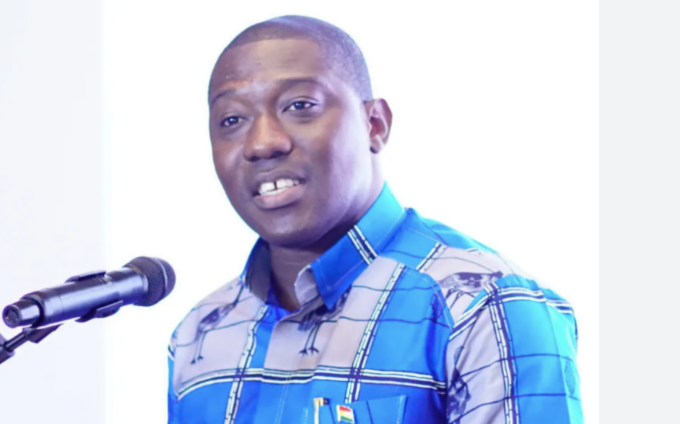Herbert Krapa, Minister of State at the Ministry of Energy, says the government is committed to taking concrete steps towards reducing emissions and meeting its international obligations under the Paris Agreement.
As part of efforts towards that goal, he said interventions in key sectors including energy, agriculture and transport are being implemented to contribute to achieving the goal.
Mr Krapa, who was speaking at the opening of a Water-Energy-Food (WEFP) Nexus Program Knowledge sharing Seminar in Accra said the government was working with local and international stakeholders to for instance achieve the 10 per cent renewable energy target.
The WEFP is a project that seeks to develop 100 hectares of mechanised and irrigated farmland to produce more than 1,200 tons of quality rice seeds annually.
It will provide clean sustainable energy to power the irrigation systems at Dawhenya and guarantee the farmers reliable access to water throughout the year.
The project will be implemented over the next five years by the Centre for Scientific and Industrial Research (CSIR) in partnership with the Korea Programme for International Cooperation in Agriculture (KOPIA) Ghana Centre.
Mr Krapa stated that WEFP was a significant effort to improve Ghana’s productive uses of the energy landscape, increase agricultural output, ensure sustainable water management, and accelerate the Government’s flagship program “Planting for Food and Jobs.”
He noted that the project sets the stage for a bigger vision for the future explaining that by investing in renewable energy infrastructure, it could stimulate innovation, and growth in the real sectors of our economy, create decent and sustainable jobs, and build resilience to climate change in vulnerable communities.
The Minister noted that the government had lifted the moratorium on distributed renewable energy and launched the net-metered renewable energy program.
“Consequently, we have rolled out the Government Goes Solar with €22 million funding by KfW, the 12,000 net-metered solar PV project as part of the US$85 million Scaling-up Renewable Energy Program in bid to promote productive uses of energy and increase the country’s renewable energy stock,” he said.
Dr Choong-Hoe Kim, the Director of KOPIA Ghana Center said high-yield rice varieties and agricultural mechanization were crucial steps in boosting rice production and achieving greater self-sufficiency in Ghana.
Energy generation, he said, was essential for supporting those activities, explaining that project partners had worked together in the last two years in preparation for the implementation of the WEFP project.
The project, he said, aimed to produce more than 5,000 tons of quality rice seeds, which would then be distributed to over one-third of total acreages of rice land across the country.
“This would help address the rice seeds shortage problem in Ghana, where less than half of its needs are currently met and increase rice productivity from 3 tons per hectare to over four tons per hectare,” he said.
Dr Kim said the Government of the Republic of Korea placed a high priority on advancing the agricultural and energy sectors in Ghana.
He assured that the Korean Government would continue to cooperate with the Ghanaian Government to help Ghana achieve its goal of self-sufficiency in rice production as well as in energy generation.
Latest Stories
-
Police officer interdicted after video of assault goes viral
2 mins -
KNUST’s Prof. Reginald Annan named first African recipient of World Cancer Research Fund
3 mins -
George Twum-Barimah-Adu pledges inclusive cabinet with Minority and Majority leaders
50 mins -
Labourer jailed 5 years for inflicting cutlass wounds on businessman
51 mins -
Parliament urged to fast-track passage of Road Traffic Amendment Bill
52 mins -
Mr Daniel Kofi Asante aka Electrician
52 mins -
Minerals Commission, Solidaridad unveils forum to tackle child labour in mining sector
57 mins -
Election 2024: Engagement with security services productive – NDC
59 mins -
Retain NPP for the good of Ghana – Rebecca Akufo-Addo
59 mins -
‘Let’s work together to improve sanitation, promote health outcome’ – Sector Minister urges
1 hour -
Ellembelle MP cuts sod for six-unit classroom block at Nkroful Agric SHS
1 hour -
‘I’ll beat the hell out of you if you misbehave on December 7’ – Achiase Commanding Officer
1 hour -
AFPNC leads the charge on World Prematurity Day 2024
1 hour -
Court remands unemployed man over theft of ECG property
1 hour -
Election security rests solely with the police – Central Regional Police Command
1 hour

